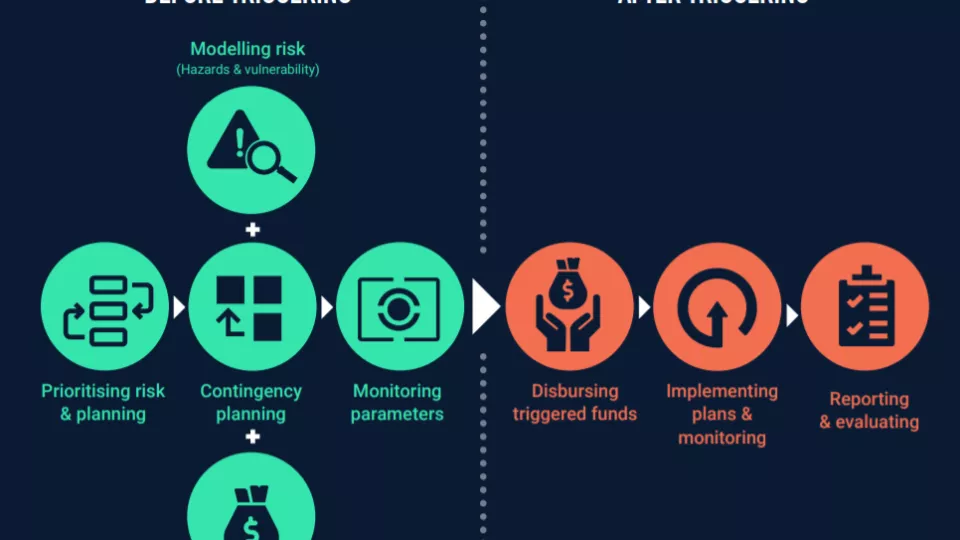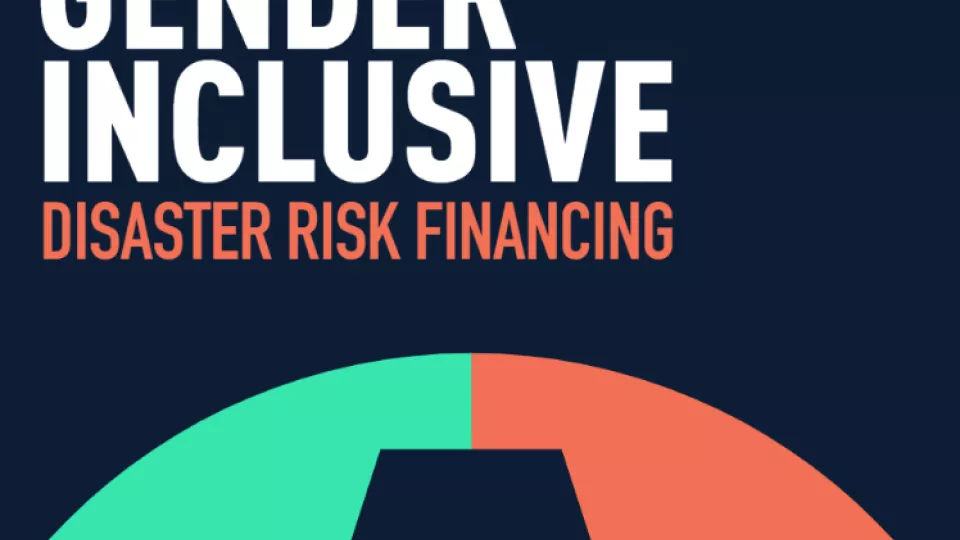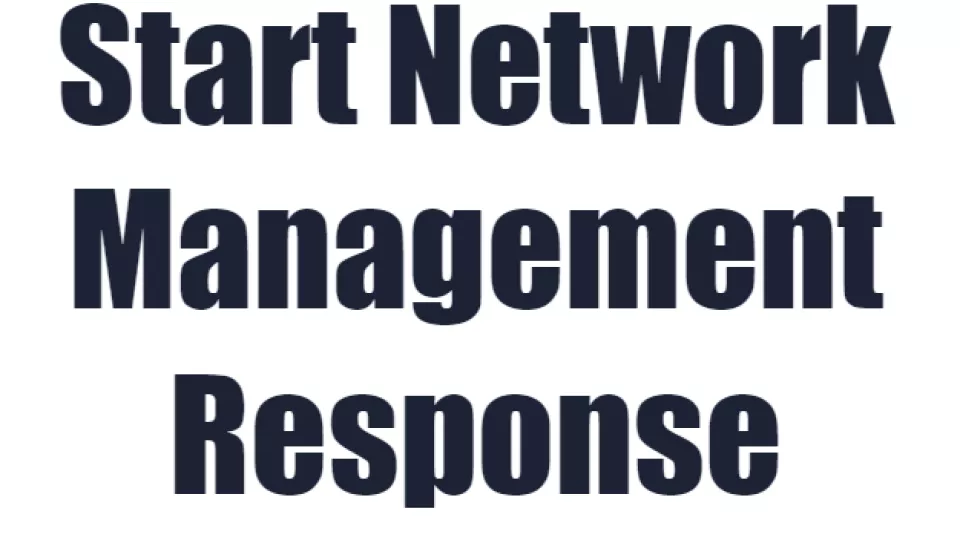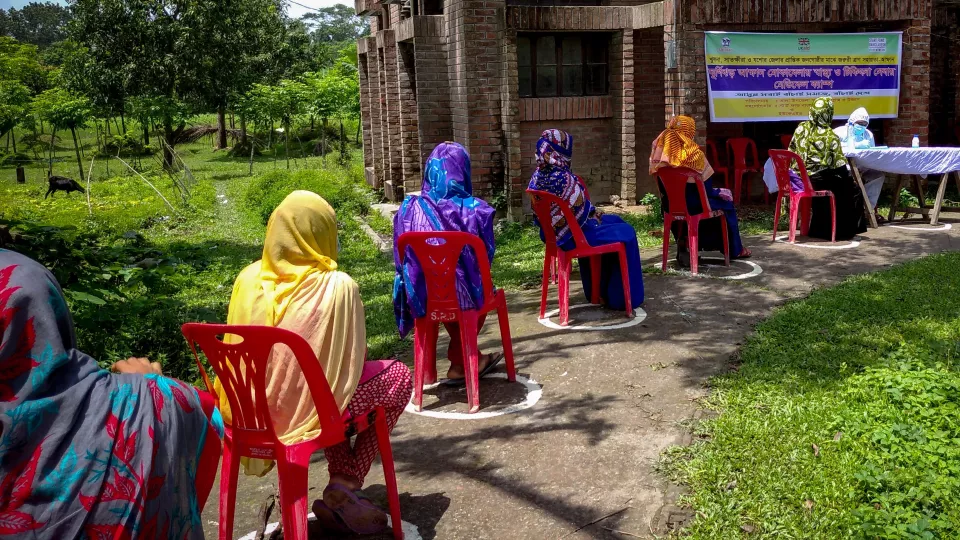Search

ACCOUNTABILITY TO AT RISK COMMUNITIES IN DISASTER RISK FINANCING (DRF) SYSTEMS
Sector wide review of monitoring, evaluation, accountability and learning methodologies for forecast-based action

Gender Inclusive Disaster Risk Financing
As the Start Network continues to focus on Disaster Risk Financing programming, this research was commissioned to analyse the issues and additional considerations around gender in DRF programming. Making programming most effective includes ensuring that the DRF systems that we build or support are fully gender-sensitive and adequately account for gender differences at different points of the project cycle. This includes how gender issues might differ across different hazard types (eg. fast vs. slow onset) and geographic contexts, and the approaches we can take to account for them. Specifically, the purpose of this research is to answer the following two questions: 1) Which points in DRF System development and implementation are likely to have the most significant gendered aspects? How might this vary between hazards and contexts? 2) How can our disaster risk financing ‘building blocks’ (i.e the guidance we give to Start Network members for building quality DRF systems) be enhanced to fully mainstream gender? This research was led by Practical Action Consulting and the case studies were carried out by CARE Bangladesh and CARE Philippines, with close support from the Start Network.

A management response to: An External Evaluation of the Start Fund Preparedness to Scale-Up 2018/9
The Start Fund has an established practice of providing management response to its external, independent evaluations. Developed through a participatory process, the management response helps to ensure that the evaluations are used, contributing to the Start Funds’ effectiveness, learning, and accountability. Start Fund constituted an Evaluation Management Response Drafting Committee, comprising of: Three representatives from the Start Fund Strategic Committee: John Birchenough from Catholic international development charity, CAFOD; Jonathan Brooker from Solidarites International UK; and Saba Mahmood from Islamic Relief Worldwide and Start Funds, Head of Funds, Lucile Brethes Start Fund Manager, Lucretia Puentes Start Funds MEAL Manager, Chaitali Chattopadhyay The drafting committee members carried out a wide-range consultation with the broader Start Fund committee members, Start Network Leadership Team and the Board members to develop a comprehensive management response to the evaluation. The document can be accessed here. The progress against the management response will be presented to the Start Fund Strategic Committee on a regular basis to ensure compliance and accountability towards the committed actions.

Gender Inclusive Disaster Risk Financing - Executive Summary
In 2021, Start Network commissioned a piece of research to analyse issues around gender for Disaster Risk Finance programming, in order to make recommendations to help us ensure the DRF systems we build and support are fully gender-sensitive, and to ensure that our programmes adequately account for gender differences at different points of the project cycle. Based on the ‘Missing Voices’ methodology developed by Practical Action, the research sought to hear from those individuals who are most marginalised, to gain insight into their experiences in order to design more inclusive approaches to disaster risk management. The research included a deep dive into two case studies - Bangladesh and the Philippines - to illustrate the gendered dimensions of DRF programming with real-life experiences.
1. THINKING IMPACT BEFORE INSTRUMENTS IN HUMANITARIAN DISASTER RISK FINANCING
Basis risk in disaster risk financing for humanitarian action
This paper offers a number of potential technical solutions to assessing, managing and reducing basis risk. It acknowledges that, in order to be effective, these need to be accompanied by political and coordination efforts, and a wider look at DRF operational systems that are fit for crisis settings. The authors invite further ideas and discussion on this topic, including any opportunities to test and innovate new operational designs.
Anti-Racist and Decolonial Framework
PEOPLE-CENTRED AND TRANSPARENT RISK ANALYTICS
A new series of technical discussion papers by the Start Network, the Red Cross Red Crescent Climate Centre and the International Federation of Red Cross and Red Crescent Societies explores how evolving disaster risk financing (DRF) approaches could be a game changer in acting earlier, quicker and more effectively to predictable humanitarian crises. The papers are attempting to redefine how DRF meets humanitarian objectives. Building on the practical experience of the Start Network and IFRC the papers call for a move from the traditional DRF sovereign approach to a more human-impact driven approach to risk financing, identifying the financial and operational needs from the ground up; an ‘impact before instruments approach.’ Each paper explores the need for such a renewed approach whilst identifying some of the technical challenges and posing solutions to make disaster risk financing work most effectively in the humanitarian context. The aim is to ignite dialogue and build collaboration around key technical challenges whilst highlighting some key solutions to unlock the potential of DRF for humanitarian action.
